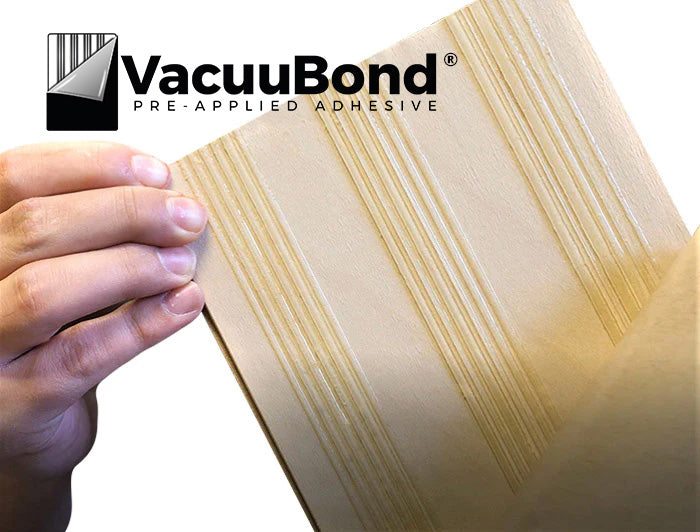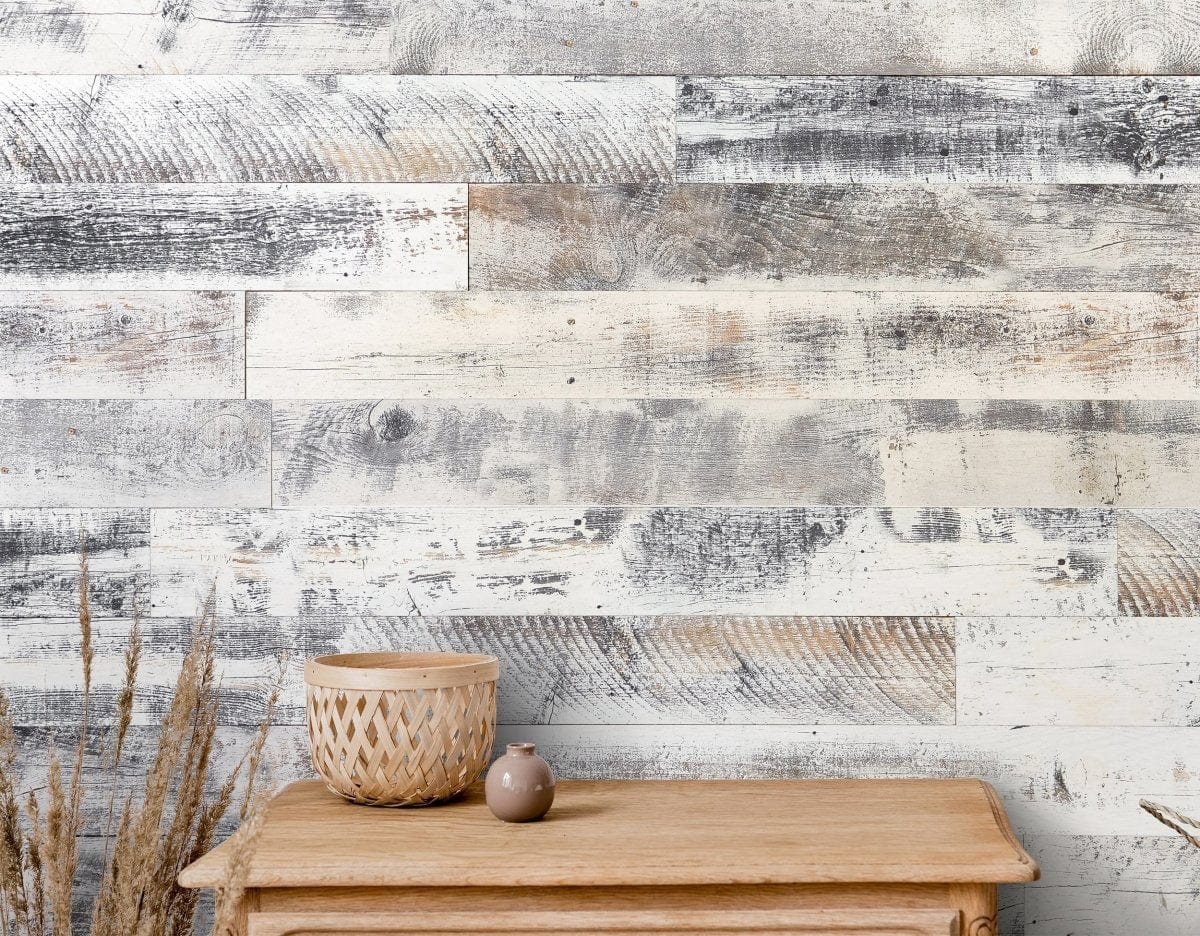Your Cart is Empty
Get your first 3 samples FREE! Use code: 3FREESAMPLES at checkout!
Get your first 3 samples FREE! Use code: 3FREESAMPLES at checkout!
Shop Products
What's Trending
Resources
Wallplanks® Blogs
The Best Top Coat Wood Finish
Pre-Applied Adhesive
Wallplanks® Blogs

View Blogs >
The Best Top Coat Wood Finish

Read More >
Pre-Applied Adhesive

Read More >
Does Half Wall Paneling Make a Room Look Smaller?
July 24, 2024 4 min read

Understanding interior design and its visual impacts on space is crucial in creating a living environment that feels open, inviting, and perfectly aligned with your aesthetic preferences. One of these design elements, half wall paneling, often sparks debates about its influence on room perception. Can it make a room look smaller, or does it carry a different visual effect?
The Design Trend of Half Wall Paneling
For centuries, wall paneling has been a classic feature in homes, offering both protection from wear and tear and a decorative element. Half wall paneling, also known as wainscoting when it covers the lower half of the wall, specifically gained popularity for its sophistication and subtle elegance. It adorns the bottom section of walls, usually capped with a distinctive rail that visibly separates the paneled lower half from the upper painted or wallpapered section.
Understanding Half Wall Paneling
Half wall paneling serves multiple purposes in interior design. Traditionally, it protected walls from damage caused by frequent contact or furniture. However, today's paneling options, like those from Wallplanks, serve as an aesthetic enhancement while adding texture and architectural interest to plain walls. Despite its benefits, there's an underlying concern that half wall paneling might make a room appear smaller.
Analyzing Visual Perception
To understand whether half wall paneling makes a room look smaller, we must examine human visual perception and spatial psychology.
Depth and Dimension
When half wall paneling is done right, it can create an illusion of depth. Paneling adds a third dimension to walls, visually expanding the space by making walls appear layered rather than flat. This effect can compensate for the slight reduction in wall height caused by the paneling.
Height Considerations
The height at which paneling is installed significantly influences room perception. Traditional paneling usually reaches about 36 inches up the wall, but this can vary. Taller rooms can afford higher paneling without compromising the space's openness. Conversely, half wall paneling should be proportionate in rooms with lower ceilings, ideally covering one-third of the wall height.
Continuous Lines and Space
One concern is that the horizontal line of paneling can divide a room, potentially making it look segmented. However, consistent design choices can overcome this. Choosing lighter colors for both paneling and walls creates a continuous visual flow, which can maintain an open feel rather than disrupt the view.
The Role of Color and Finish
Colors and finishes play pivotal roles in determining the psychological space in a room. Light, neutral tones and reflecting finishes tend to make spaces feel larger, whereas dark colors can make areas feel intimate and cozy, sometimes smaller if not balanced properly.
Light Colors
Light-colored half wall paneling, such as whites, creams, soft grays, and pastels, can prevent the room from feeling enclosed. These shades reflect more light, enhancing the overall spaciousness.
Glossy Finishes
Glossy or semi-gloss finishes for paneling can further reflect natural and artificial light, contributing to an illusion of more space. Matte finishes, while trendy, might absorb light, potentially making the room feel more constrained.
Practical Applications in Different Room Types
Each room in a home serves a different purpose and requires a unique approach to wall treatments.
Living Rooms
Half wall paneling can add charm and character to living rooms, particularly when matched with complementary furnishings. When applied thoughtfully, it can emphasize the room's central features, like a fireplace or entertainment unit, leading to a balanced and harmonious space.
Dining Rooms
Half wall paneling benefits dining rooms greatly. It adds formality without overwhelming. It defines the eating area, providing an intimate dining experience. Using darker shades for paneling in dining rooms can create a cozy atmosphere where the paneling feels intentional rather than constricting.
Hallways and Entryways
Hallways and entryways are notorious for being narrow spaces. Implementing half wall paneling in these areas, ideally in lighter hues, can visually widen corridors. Additionally, paneling can protect these high-traffic areas from scuffs and marks.
Bathrooms
In bathrooms, half wall paneling combined with tile or waterproof finishes can create a fresh, clean aesthetic that helps small bathrooms feel more significant and organized. Lighter colors in bathroom paneling are especially effective in compact spaces.
Enhancing Visual Space with Wallplanks
To enhance room space without compromising style, Wallplanks offers an extensive range of half wall paneling solutions. Crafted in the U.S. from materials sourced across North America, our products epitomize quality and durability. Founded by Tryggvi Magnusson in 2017, Wallplanks has seamlessly blended ease of use with premium aesthetics to transform any interior.
Why Choose Wallplanks
- Quality and Durability: Wallplanks' commitment to top-notch materials ensures that your paneling looks exquisite and stands the test of time.
- Ease of Installation: Designed for DIY enthusiasts and professionals alike, Wallplanks products come with straightforward installation guides, making your renovation process smooth and satisfying.
- Aesthetic Diversity: With various color and texture options, Wallplanks can cater to every design preference, from modern minimalism to rustic charm.
Does Half Wall Paneling Make a Room Look Smaller?
The perception that half wall paneling makes a room look smaller is largely a myth when considering the broader aspects of interior design. With careful application, thoughtful color and finish choices, and suitable height considerations, half wall paneling can enhance a room's visual space rather than constrict it.
Embrace the timeless appeal and functional benefits of half wall paneling with Wallplanks, an industry leader from Weston, Wisconsin. Founded by Tryggvi Magnusson and backed by From the Forest, LLC, Wallplanks promises impeccable craftsmanship and an array of design solutions to meet your unique needs. Explore how our high-performing wall products can transform your interiors.
Discover how to enhance your living spaces with Wallplanks and create a room that feels bigger, brighter, and perfectly styled.

